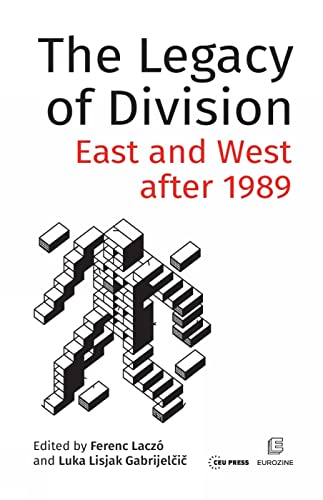Verwandte Artikel zu The Legacy of Division: East and West after 1989

Inhaltsangabe
This volume examines the legacy of the East-West divide since the implosion of the communist regimes in Europe. The ideals of 1989 have largely been frustrated by the crises and turmoil of the past decade. The liberal consensus was first challenged as early as the mid-2000s. In Eastern Europe, grievances were directed against the prevailing narratives of transition and ever sharper ethnic-racial antipathies surfaced in opposition to a supposedly postnational and multicultural West. In Western Europe, voices regretting the European Union's supposedly careless and premature expansion eastward began to appear on both sides of the left-right and liberal-conservative divides. The possibility of convergence between Europe's two halves has been reconceived as a threat to the European project.
In a series of original essays and conversations, thirty-three contributors from the fields of European and global history, politics and culture address questions fundamental to our understanding of Europe today: How have perceptions and misperceptions between the two halves of the continent changed over the last three decades? Can one speak of a new East-West split? If so, what characterizes it and why has it reemerged? The contributions demonstrate a great variety of approaches, perspectives, emphases, and arguments in addressing the daunting dilemma of Europe's assumed East-West divide.
Die Inhaltsangabe kann sich auf eine andere Ausgabe dieses Titels beziehen.
Über die Autorinnen und Autoren
Ferenc Laczó is an assistant professor in European History at Maastricht University.
Luka Lisjak Gabrijelcic is a Slovene historian, political analyst and translator.
„Über diesen Titel“ kann sich auf eine andere Ausgabe dieses Titels beziehen.
Neu kaufen
Diesen Artikel anzeigenGratis für den Versand innerhalb von/der Deutschland
Versandziele, Kosten & DauerSuchergebnisse für The Legacy of Division: East and West after 1989
The Legacy of Division: East and West After 1989
Anbieter: moluna, Greven, Deutschland
Zustand: New. Artikel-Nr. 350497278
Anzahl: Mehr als 20 verfügbar
The Legacy of Division : East and West After 1989
Anbieter: AHA-BUCH GmbH, Einbeck, Deutschland
Taschenbuch. Zustand: Neu. Neuware - This volume examines the legacy of the East-West divide since the implosion of the communist regimes in Europe. The ideals of 1989 have largely been frustrated by the crises and turmoil of the past decade. The liberal consensus was first challenged as early as the mid-2000s. In Eastern Europe, grievances were directed against the prevailing narratives of transition and ever sharper ethnic-racial antipathies surfaced in opposition to a supposedly postnational and multicultural West. In Western Europe, voices regretting the European Union's supposedly careless and premature expansion eastward began to appear on both sides of the left-right and liberal-conservative divides. The possibility of convergence between Europe's two halves has been reconceived as a threat to the European project.In a series of original essays and conversations, thirty-three contributors from the fields of European and global history, politics and culture address questions fundamental to our understanding of Europe today: How have perceptions and misperceptions between the two halves of the continent changed over the last three decades Can one speak of a new East-West split If so, what characterizes it and why has it reemerged The contributions demonstrate a great variety of approaches, perspectives, emphases, and arguments in addressing the daunting dilemma of Europe's assumed East-West divide. Artikel-Nr. 9789633863749
Anzahl: 2 verfügbar
The Legacy of Division: East and West after 1989
Anbieter: Ria Christie Collections, Uxbridge, Vereinigtes Königreich
Zustand: New. In. Artikel-Nr. ria9789633863749_new
Anzahl: Mehr als 20 verfügbar
The Legacy of Division East and West after 1989
Anbieter: Revaluation Books, Exeter, Vereinigtes Königreich
Paperback. Zustand: Brand New. 344 pages. 8.25x5.25x0.75 inches. In Stock. Artikel-Nr. __9633863740
Anzahl: 2 verfügbar
The Legacy of Division: East and West After 1989
Anbieter: Kennys Bookstore, Olney, MD, USA
Zustand: New. 2020. Paperback. . . . . . Books ship from the US and Ireland. Artikel-Nr. V9789633863749
Anzahl: Mehr als 20 verfügbar
